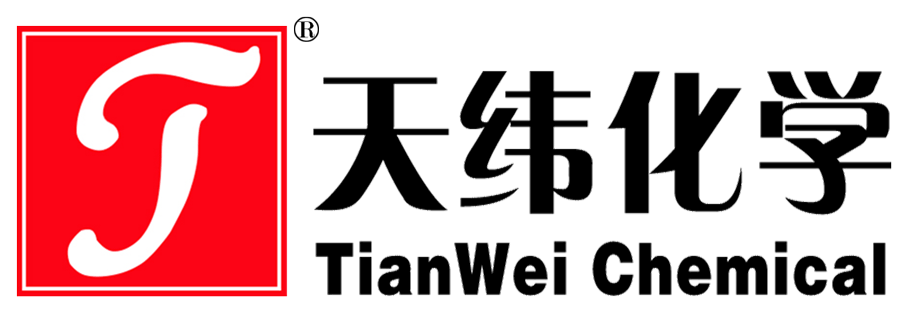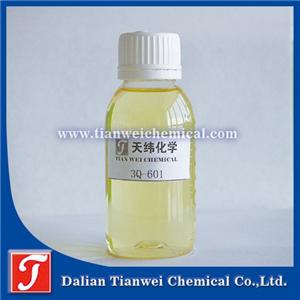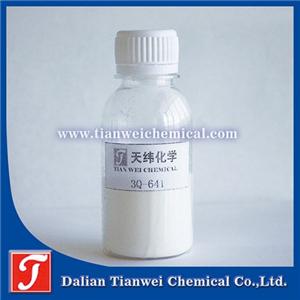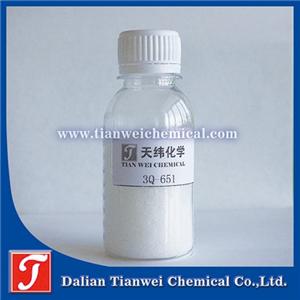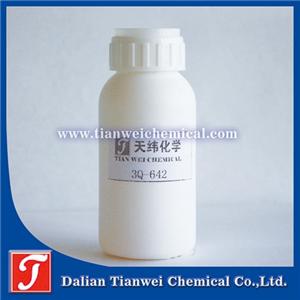-
The advantages of zinc ion antibacterial agents for plastic cutting boards
Low toxicity: Zinc is an essential trace element for the human body (the recommended daily intake is about 8-11 mg). A small amount of migration is usually harmless, and its safety is higher than that of silver ions (which may accumulate) or organic antibacterial agents (such as triclosan). Food-grade certification: Complies with the standards of food contact materials in various countries (such as FDA, EU 10/2011, and Chinese GB 4806), and is suitable for long-term use.
20-05-2025 -
The application of antibacterial agents in TPE films
Surface coating: Suitable for post-processing antibacterial treatment. The adoption of plasma pretreatment technology to enhance the surface energy of TPE films can improve the adhesion of silver nanoparticle coatings.
16-05-2025 -
Paper glue mold inhibitor: Provides long-lasting mold protection for paper products
In terms of composition, paper glue usually contains nutrients such as starch, protein and oil, which are precisely the "delicacies" needed for the growth and reproduction of mold. For instance, common glue is composed of polyvinyl alcohol, white latex, sodium stearate, talcum powder, urea, ethylene glycol, sucrose, flavoring, water, etc. Among them, components such as sucrose and protein provide rich nutritional sources for mold.
14-05-2025 -
What is the function of adding antibacterial agents to the handle of a toothbrush
Silver ions/copper ions: Achieve broad-spectrum antibacterial effects by destroying the cell structure of microorganisms and are suitable for plastic handles. When adding, the dosage should be controlled (such as 0.3%-0.8%) to avoid the risk of yellowing or toxicity caused by the precipitation of metal ions. Nano zinc antibacterial agent: Utilizing nano zinc oxide technology, it is safe, environmentally friendly and has a high antibacterial efficiency. It is suitable for food contact grade materials (such as toothbrush handles) and can inhibit Escherichia coli, Staphylococcus aureus, etc.
12-05-2025 -
Analysis of the Types and Application Depth of Marine Antifouling Agents
Nanomaterials such as nano-zinc oxide and nano-titanium dioxide photocatalyze the generation of reactive oxygen species, which destroy the structure of biological cells. Or it can suppress adhesion through physical action, which is highly efficient, environmentally friendly and multi-functional. The preparation process is complex and the cost is relatively high
09-05-2025 -
Innovative Application of Silver Ion Antibacterial Agents in Oil-based Coatings
Driven by the dual impetus of enhanced public health awareness and the iteration of antibacterial technologies, the integration of oil-based coatings and silver-ion antibacterial agents is becoming an innovative direction in fields such as construction, healthcare, and food processing.
08-05-2025 -
The application of antibacterial agents in PPR pipes
The processing temperature of PPR pipes is relatively high (usually 200-260°C), so high-temperature resistant and stable antibacterial agents need to be selected. Inorganic antibacterial agent
07-05-2025 -
Antibacterial agents are added to ABS material for long-lasting protection and highly efficient antibacterial performance
Adding antibacterial agents to ABS materials is an important means to enhance their antibacterial performance and expand their application fields. The following is an introduction from several dimensions including the types of antibacterial agents, application advantages, and application fields: Types of antibacterial agents for ABS materials
06-05-2025 -
Bactericide and preservative for waterborne acrylic coatings
In an environment with a temperature of 25-35℃ and a humidity of over 70%, microorganisms such as mold and yeast can form colonies within 24 hours, and their metabolic products can cause the following deterioration of the coating:
29-04-2025 -
Classification of antibacterial agents for polypropylene (PP) plastic
Polypropylene (PP), as an important general-purpose plastic, features excellent mechanical properties, electrical insulation, thermal stability and processing performance
24-04-2025
